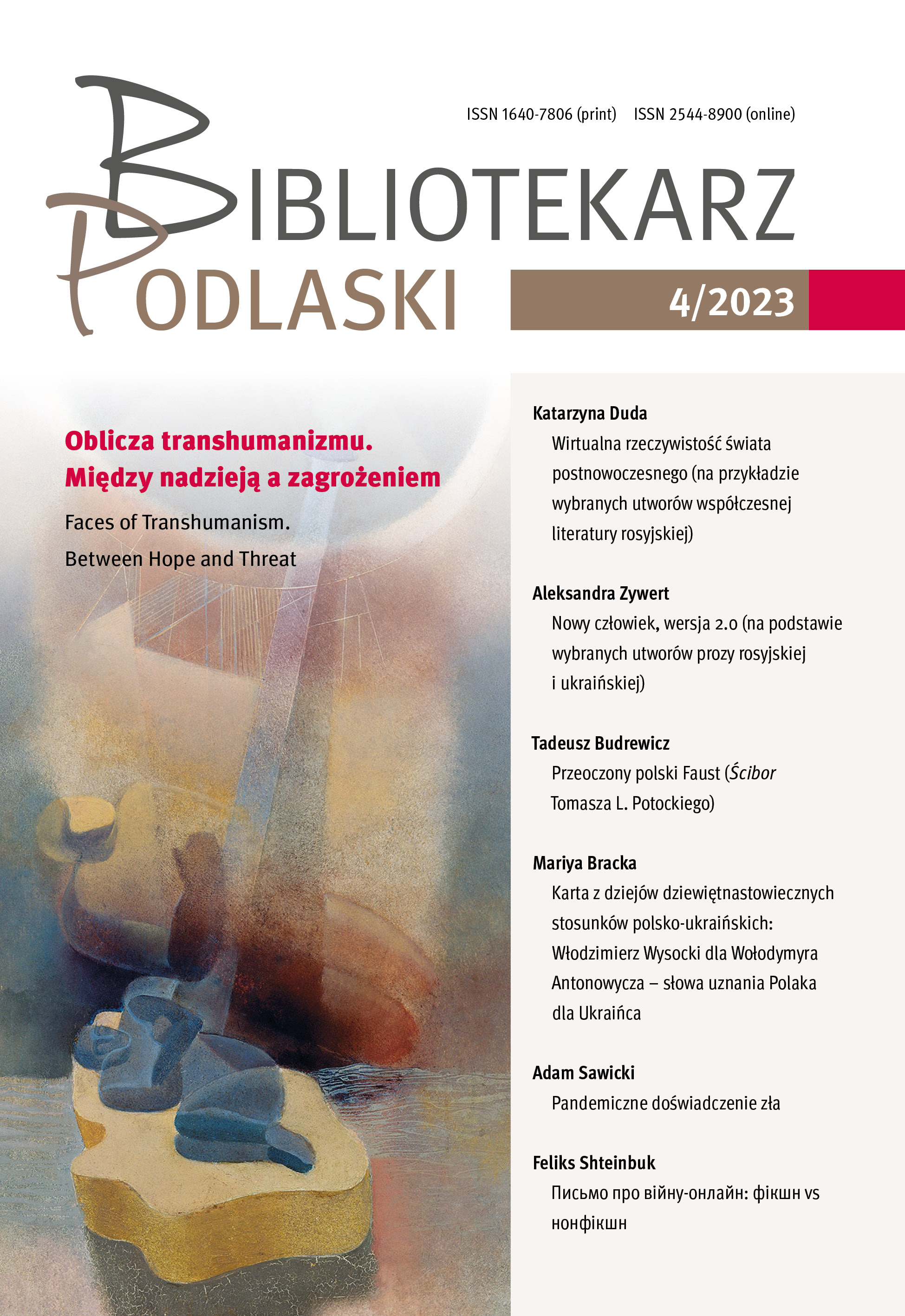Abstract
The article is an attempt to address the issue of evil philosophically and also in terms of theology, which is related to the global coronavirus pandemic that humanity has experienced. It emphasizes the metaphysical nature of understanding this evil, going beyond ethical categories. Difficulties in interpreting this evil as a moral consequence of original sin were pointed out. The issue of the impact of the pandemic on religious life was also raised. Attention was paid to possible attitudes towards the mysterious nature of this type of evil (heroic secular humanizm, Christian theology of suffering).
References
Bibliografia:
Arendt H., Eichmann w Jerozolimie: rzecz o banalności zła, przeł. A. Szostkiewicz, Kraków 1998.
Camus A., Dżuma, przeł. J. Guze, Warszawa 1998.
Defoe D., Dziennik roku zarazy, przeł. J. Dmochowska, Warszawa 2022.
Krąpiec M.A., Dlaczego zło?, Lublin 2005.
Le Bon G., Psychologia tłumu, przeł. B. Kaprocki Warszawa 2010.
Marek Aureliusz, Rozmyślania, przeł. M. Reiter, Warszawa 1997.
Nancy J.-L., Arcyludzki wirus, przeł. A. Dwulit, Kraków 2021.
Źródła internetowe:
https://biblia.deon.pl [dostęp: 4.09.2023].
https://kalejdoskopkultury.pl/idzie-nowe-w-starych-butach-dyskurs-o-covid [dostęp: 4.09.2023].
https://www.dwutygodnik.com/artykul/9008-koronawirus-i-niekoniecznosc-filozofii.html [dostęp: 4.09.2023].

This work is licensed under a Creative Commons Attribution-ShareAlike 4.0 International License.
Copyright (c) 2024 Adam Sawicki


